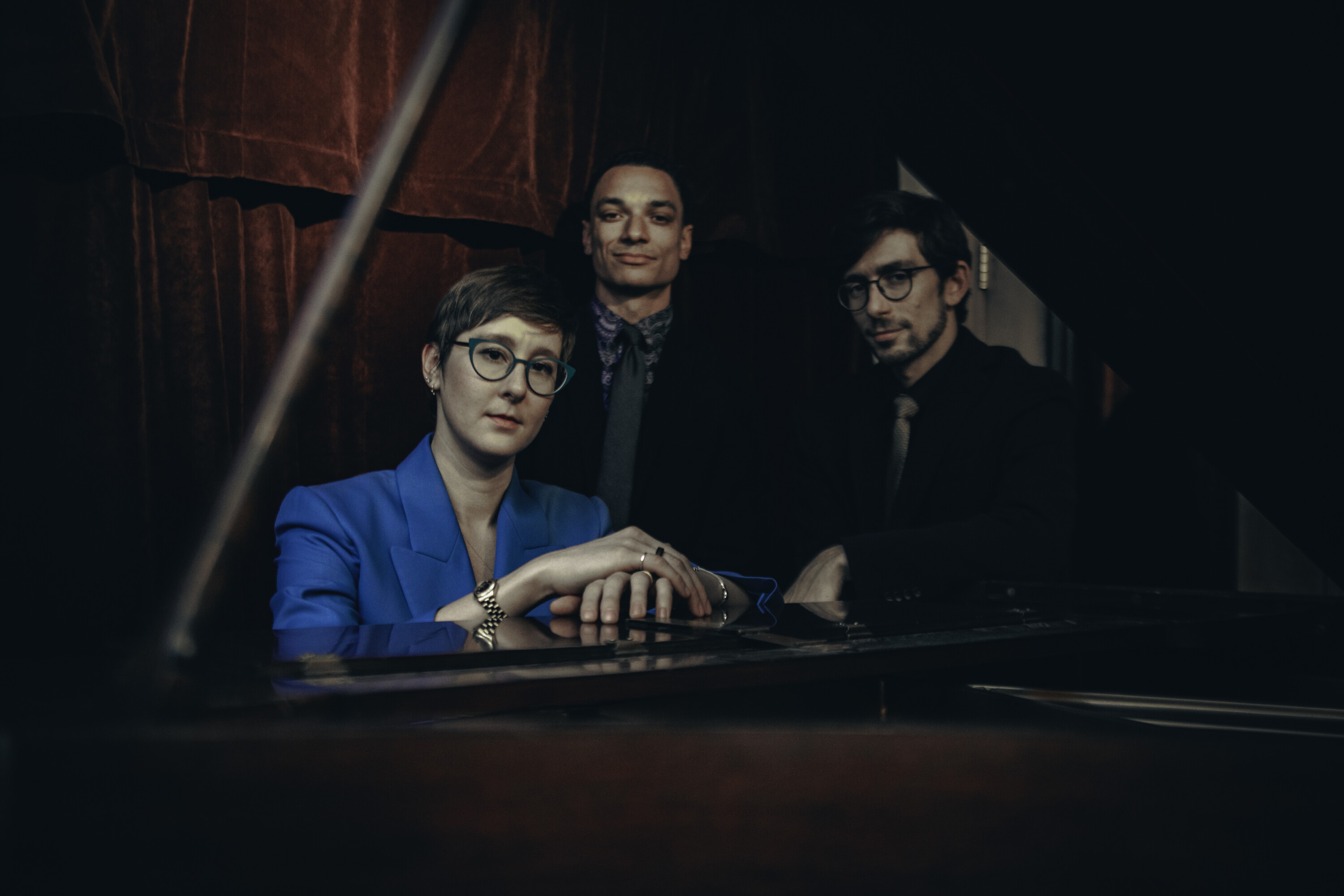Endings That Are Beginnings is the third album by Kelly Green, an Orlando native and UNF graduate who’s been making a name for herself on the highly competitive New York jazz scene during the last eight years she’s resided in the city.
Green is probably best known for her classic trio with Alex Tremblay (bass) and Evan Hyde (drums). The new album features a more unorthodox trio that includes Daniel Carter on alto saxophone, clarinet and flute, as well as Luca Soul Rosenfeld on upright bass. Green and Rosenfeld were married just a couple years ago, and that’s just one of several major transitions in her life, dramatic shifts that are reflected in the music.
The pandemic wreaked havoc on New York, and its jazz scene in particular — more so than anything since heroin. Live shows stopped, tour plans were scrapped, and even the salutary effects of basic travel were sharply curtailed by the lockdown.
Amidst all that chaos and tragedy in her industry, Kelly Green’s mother passed away here in Florida. I only met her parents once, between sets at The Parlour at Grape and Grain Exchange in San Marco, where her original trio was playing two nights that bookended the recording of her second album at a studio just down-state, here in Florida. She was visibly proud of her daughter’s hard work, as any parent would be.
Isolation, compounded by loss, took the expected toll; but as is so often the case, music offered some small salvation. Green’s style carries many of the same influences one might expect: Marian McPartland, Blossom Dearie, Billy Taylor, etc. She blends the aesthetic of classic hotel bar-room, torch music, but with chops honed through years of late-night jam sessions in what remains the most densely talented jazz scene in the world.
The album was recorded in one day–June 18, 2021–but not released until September 2022. She recorded it at home, at her own GreenSoul Studios in Queens, New York, where she has also been booking concerts featuring herself and her peers in the local jazz scene. (That space is also where she has just begun recording her fourth album, Seems, with her trio augmented by Elijah Thomas on flutes and Rich Perry on tenor saxophone. That album will be out later this year.) The room holds a little less than 30 people, and those people are usually part of a new generation of jazz fans who are helping to change the way the music is perceived by mainstream audiences. Many of them are musicians themselves.

Instead of trying to fight for space among jazz labels, many of which have been making up for lost time by putting out the large amount of material that was recorded in the pandemic era, Green chose instead to put the album out independently. That is always a challenge, as many of you reading this can readily attest, but it’s probably more challenging for jazz, a genre whose fundamentally niche appear places more emphasis on traditional media like radio and the press, key curators that ultimately perform a sort of gatekeeping function, as far as getting the product out in front of the fans. Luckily, Green has cultivated her own dense base of connections throughout her career, and she has leveraged those in support of her current product.
Her debut album, Life Rearranged (2017), was a lushly-arranged, ambitious production with a whole squad of artists assembled, including Kush Abadey, Jovan Alexandre, Josh Evans, Noam Israeli, Steve Nelson, Tamir Shmerling, Mike Troy and the legendary Christian McBride (who recently played the Ponte Vedra Concert Hall with his own trio on February 11). That album showcased the diversity of Green’s artistry and the potency of her original compositions in solo, trio and even sextet settings.
Green’s second album, Volume One (2018), featured her iconic original trio with Tremblay and Hyde. Moving between bucolic balladry and ruthless swing of the classic variety, it instantly established her as a rising star in the genre, an improviser who plays as well as she sings.
Green took an unorthodox approach to the release of this, her third studio recording, returning to the trio format, but in a much more unconventional form. The tracks evolved organically from a series of group improvisations, what she calls “spontaneous composition”. The resulting material meshes like it was all written out, note for note. This group includes Daniel Carter on alto saxophone, clarinet and flute, as well as Luca Soul Rosenfeld on upright bass. The intimacy of Rosenfeld and Green’s relationship is reflected in the music they’re making together.
Green also took the reigns by overseeing the recording, mixing and mastering herself, in addition to writing all the songs. The album is currently available as a digital download, which can be had by purchasing a poster of the album art, which includes the download code. It is one worth listening to, over and over and over again.

Song of the Day | “Empty Trainload of Sky” by Gillian Welch and David Rawlings

The Neighborhood Playlist | July 20

Jax Music Hour Playlist | July 20

UK Shoegazers Slowdive to Kick Off New Fall Tour at St. Augustine Amphitheatre

Flipturn, St. Paul & the Broken Bones Highlight this Year’s Two-Day Florida Fest in Jacksonville Beach

Song of the Day | “Coast” by Kim Deal

The Latest Collab from Dillon and Batsauce Serves Up High Quality Production with Kindred Spirit Kool Keith

Song of the Day | “Lie 95” by Bartees Strange

Newly-Released Archive Recordings of Neil Young & Crazy Horse, ‘Early Daze’ is a Crucial Document of the Group’s Prime Era
